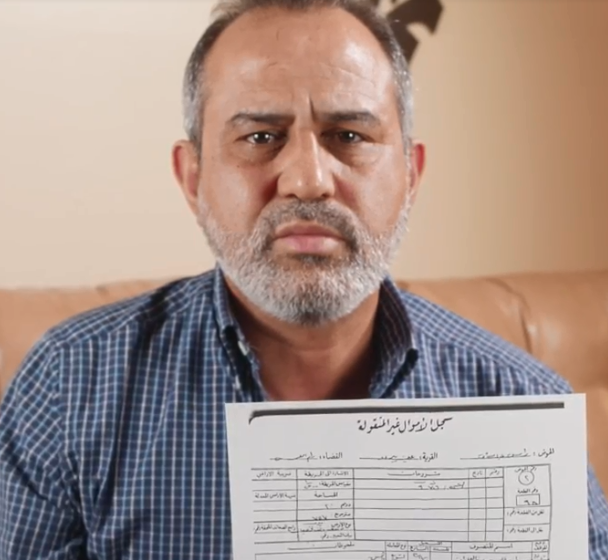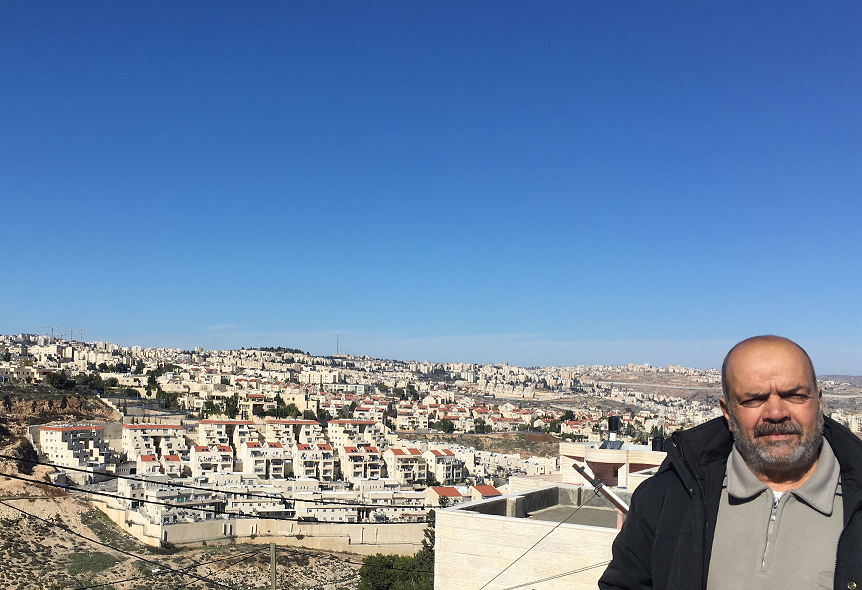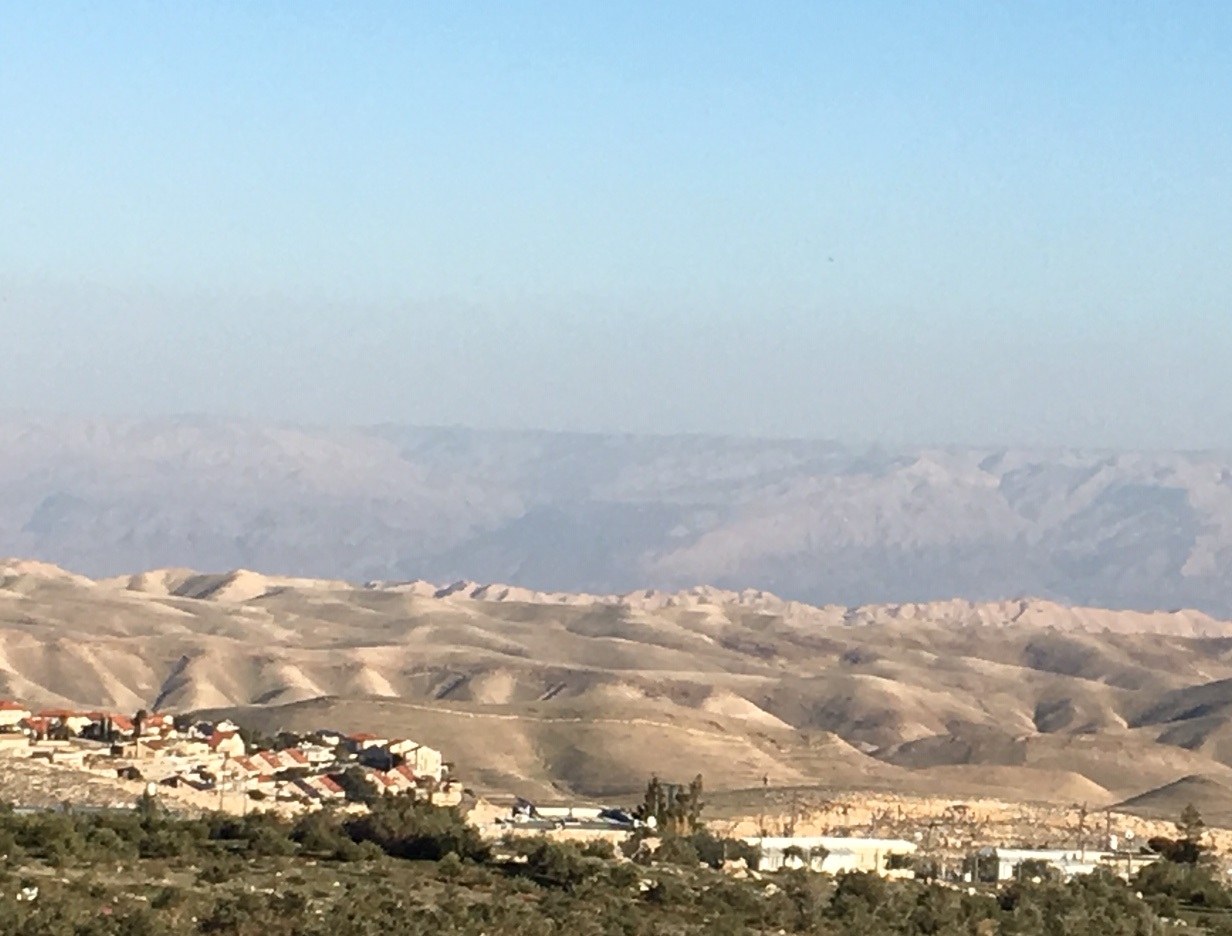For the First Time Palestinians Are Challenging Settlers Living on Their Land in a U.S. Court
The Center for Constitutional Rights is representing two Palestinian individuals, a village council, and a municipality to intervene in Silber, et al. v. Airbnb and bring counterclaims against Israeli settlers who sued Airbnb in federal court in Delaware. The intervention marks the first time that Palestinians are directly challenging the Israeli settlers living on their land in a U.S. court. The Palestinian intervenors seek to hold the settlers accountable for their role in war crimes, crimes against humanity, as well as unjust enrichment and trespass, and detail their direct involvement in the illegal Israeli settlement enterprise.
The Palestinians
Ziad Alwan

Ziad Alwan is a United States citizen and a Muslim Palestinian with West Bank residency. He was born in Ein Yabrud, Palestine, and currently lives in Chicago. Ziad’s family’s land, for which he has his father’s deed, has been illegally seized by Israel. Israeli settlers have since established the settlement of Ofra on the land, and a settler now runs a bed & breakfast there, which she lists on Airbnb. Ziad and his family are not able to access their land, and can only view it through the online postings for the bed & breakfast. Though Ziad was young when he was last able to see the land, he continues to fight for it, teaching his five children about their land and their family’s history.
Randa Wahbe

Randa Wahbe is a United States citizen and a Palestinian with West Bank residency. Born in California to a Christian Palestinian family, she is a Harvard PhD student, educator, and organizer in Somerville, Massachusetts. As a Palestinian resident of the West Bank, she is not able to enter Jerusalem or to enter Israeli settlements in the occupied Palestinian West Bank.
‘Anata town

‘Anata is a Palestinian town in the West Bank near Jerusalem. ‘Anata’s land, which was previously a farming community and borders Palestinian Bedouin territory, is occupied by several settlements, including Nofei Prat, where two plaintiffs in Silber v. Airbnb list their rentals. Nofei Prat was established as an extension of the Kfar Adumim settlement to circumvent a moratorium on construction of new settlements. Although ‘Anata’s residents have historically had access to or owned large swaths of land, today the town is congested and unable to expand due to restrictions on construction, expansion, and movement placed on it by the Israeli military.
Jalud village

Jalud is a Palestinian village in the northern West Bank near the city of Nablus. Jalud residents have historically lived off their farmlands and the livestock that they graze on the village’s land. However, much of the village’s land has been lost due to the establishment of the Israeli settlement of Shilo and its surrounding outposts, including the outpost of Adei Ad. Jalud residents have been prevented from farming their lands by settlers and the Israeli army, which protects the settlers. As a result, many villagers have had to move to nearby cities to pursue their livelihoods. The outpost of Adei Ad, which was first established in 1998 partially on Jalud’s lands, is illegal even under Israeli law. It is also home to a bed & breakfast that is run by a settler who is a plaintiff in Silber v. Airbnb.
Case Background
The Israeli settlers who sued Airbnb have unlawfully appropriated and occupied the properties they list on Airbnb, which are in Palestinian territory that Israel began occupying in 1967. By intervening in this case, the Palestinian intervenors – Ziad Alwan, Randa Wahbe, the village of Jalud, and the town of ‘Anata – seek to protect their interests in preventing continued dispossession and discrimination. They also seek to rebut the settlers’ claims that Airbnb discriminated against them when the company decided to remove settlement properties from its platform.
The original case was brought against Airbnb on November 28, 2018 by 11 Israeli settlers (who are also U.S. citizens), who list or seek to list their properties for rent on Airbnb, and nine U.S. citizens (three who are dual citizens of Israel) who seek to rent Airbnb properties in settlements in the occupied Palestinian territory. They claim that under the Fair Housing Act (FHA), Airbnb’s decision to delist illegal settlement properties in the occupied West Bank “discriminates against Jews and/or Israelis on its face and in effect on the basis of race, religion and national origin.” But the properties that settlers list and claim to own in this lawsuit are on Palestinian land, some of which belongs to Mr. Alwan, the village of Jalud, and the town of ‘Anata. And yet, because they are Palestinian, the intervenors, including Ms. Wahbe, are prohibited from accessing these properties because they are located in discriminatory Israeli settlements, which exclude Palestinians and are illegal under international law.
Mr. Alwan, Ms. Wahbe, Jalud, and ‘Anata seek to intervene to assert their property and legal interests and show that, as the settlements are both unlawful and inherently discriminatory, the plaintiffs are in effect claiming that Airbnb is discriminating against settlers’ ability to dispossess Palestinians and exclude them from their own land. The intervenors seek to bring counterclaims against the settlers for their unlawful trespass and occupation of this land, their displacement and persecution of Palestinians, and for the discriminatory advertising of these properties through platforms like Airbnb.
Airbnb’s announcement that it would de-list from its platform approximately 200 properties within occupied Palestine owned and/or operated by Israeli settlers was a win for social justice campaigners and the wider movement for Palestinian rights after several years of grassroots campaigning to demand Airbnb and other companies withdraw operations from the occupied Palestinian territory. Airbnb has stated that it would not de-list Israeli properties in East Jerusalem or the Golan Heights, even though, like the West Bank, they are under Israeli occupation.
The Israeli settlement enterprise violates several rules of international law, including the prohibitions on the transfer of civilians of the occupying power into occupied territory (i.e. Israeli civilians into the occupied Palestinian territory); the forcible transfer or deportation of protected persons within or outside the occupied territory (i.e. Palestinians from one part to another, or out of occupied Palestinian territory); the appropriation of civilian property without military necessity; and pillage. Businesses, like Airbnb, are expected to identify and mitigate their contributions to human rights and international law violations – including by ending business operations that contribute to such violations.
Learn more at Silber, et al. v. Airbnb.
Read the press release from the filing.

